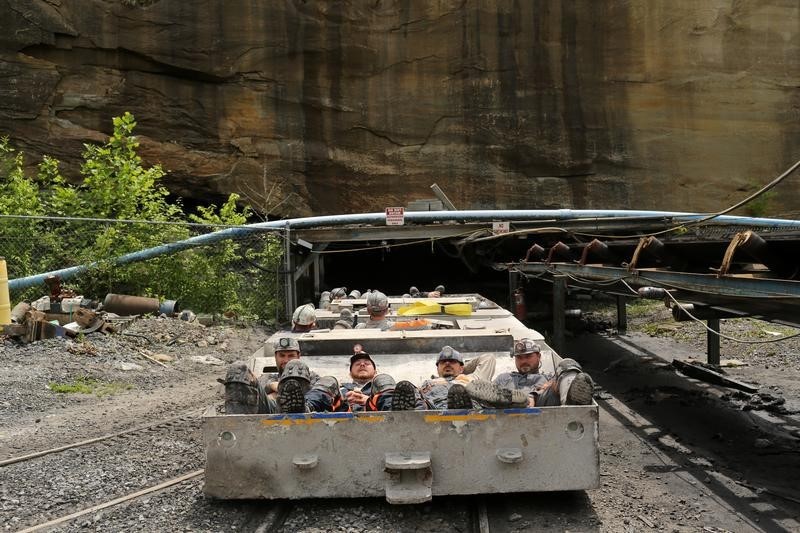(The opinions expressed here are those of the author, a columnist for Reuters)
By Clyde Russell
LAUNCESTON, Australia, Jan 28 (Reuters) - - It's probably cold comfort to coal miners in Australia and South Africa, but their Indonesian counterparts are bearing the brunt of the supply cuts needed to balance the market.
This is shown rather starkly by data from China and India, the world's two largest coal importers.
While the headline figure from China's 2015 coal customs data may have been the 25 percent plunge in shipments from top supplier Australia, of far greater market significance was the almost 40 percent plummet in those from Indonesia. imported 28.3 million tonnes of coal from Indonesia in 2015, giving the Southeast Asian nation a 18.1 percent share of the total of 155.8 million tonnes of imports, a number that excludes low-rank lignite. This was down from the 20.6 percent share it had in 2014.
In contrast, Australia's share of China's imports was 45.5 percent in 2015, up from the 41.5 percent achieved in 2014.
This means that while both major coal exporters in the Asian region were suffering from lower volumes being bought by China, Australia was able to improve its relative position against its rival by quite a significant margin.
Among China's top suppliers, gains in market share were also recorded by Mongolia, which rose to 9.2 percent in 2015 from 8.4 percent in 2014, and North Korea, which jumped to a 12.6 percent share from 6.8 percent.
It's probably worth noting that North Korea's coal shipments to China are driven partly by politics, and this near doubling in market share may not be repeated, especially if Beijing decides to send a message to Pyongyang to be less provocative in its dealings with South Korea and the rest of the world.
Among top exporters to China, Russia also suffered a decline in market share, dropping to 10.1 percent from 11.1 percent in 2014, while the United States dropped to virtually zero from a share of 1.7 percent in 2014.
The outlook for China's coal imports remains bearish, given efforts to restrict the use of the fuel for environmental reasons and excess domestic production capacity.
This means that the current trend of declining imports, but with rising market share for Australia, is likely to be maintained.
Australia is still China's top supplier of coking coal, used in steelmaking, and its higher quality thermal coal will be more welcome than Indonesia's lower-grade supplies.
INDIA ALSO BEARISH FOR INDONESIA
China's declining coal imports are being mirrored in India, but for different reasons.
While China is actively trying to limit the use of the dirty fuel, India is managing to increase both consumption and domestic output, thus mitigating the need for imports.
India imported 12.4 million tonnes of coal in December, a 34.3 percent drop on the same month in 2014, according to official figures. This was the sixth straight monthly drop in percentage terms. the first nine months of the 2015/16 fiscal year, Indian imports dropped 14.9 percent to 132.3 million tonnes.
It's estimated that imports will total about 170 million tonnes in the fiscal year to March 2016, a drop of almost 20 percent over the preceding year.
Details on the countries India bought coal from are not yet available, but in past years Indonesia has held about a 60 percent share, with next biggest suppliers Australia and South Africa both under 20 percent each.
This implies Indonesia will again account for most of the expected 52 million tonne drop in India's 2015/16 imports.
This can be seen in Indonesian Energy Ministry figures that show exports dropped 22.4 percent to 296.5 million tonnes in 2015 from a year earlier. to China, India may record falling imports again in the 2016/17 fiscal year, meaning it will be harder for Indonesia to boost its shipments this year.
While this is good news for Australian miners, and possibly those in South Africa as well, this should be tempered with the knowledge that Asia's two largest importers are on declining trends, and plentiful domestic supplies in both mean imports have to be cheap to compete. (Editing by Himani Sarkar)
